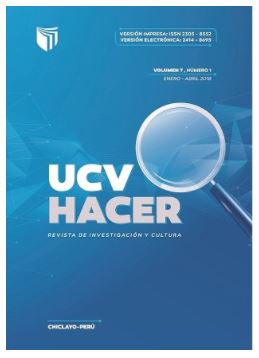Emotional intelligence to elevate the academic level in the students of Cesar Vallejo University's Education Faculty
Keywords:
Self-evaluation, Educational quality, Didactic processAbstract
The investigation hereby highlights the importance of emotional intelligence in order to actívate attention and thus achieve learning ofMathematics by the first cycle students ofthe Professional School of Primary and Secondary Education of Cesar Vallejo University. The focus given cover only the necessity of transmitting knowledge. This necessity generates difficulty if it involves Mathematics of Formal Science, very abstract, implies fundamentally the activation of positive emotions upon the students, and thus activating their brain to achieve a permanent learning, to develop Mathematical skills, and to make students apply the things learnt in their professional field. The main deducted conclusions are related to the perception of the emotional intelligence theory as a process to elevate the level of Mathematics learning. Moreover, the results ofthis work show the formulation of didactic strategies during the Logical Think:ing course. The investigation worked with a population and sample of 27 students. The instrument used is a test that reflects the perception ofthe students in relation to Mathematics, knowing that they just happen to graduate from secondary school. The results show that emotional intelligence activated to students elevates the academic level in the students.
Downloads
Downloads
Published
How to Cite
Issue
Section
License

This work is licensed under a Creative Commons Attribution-NonCommercial-ShareAlike 4.0 International License.










